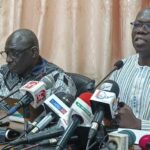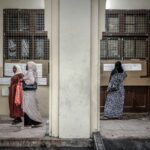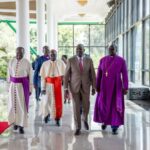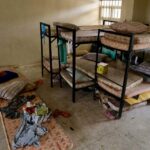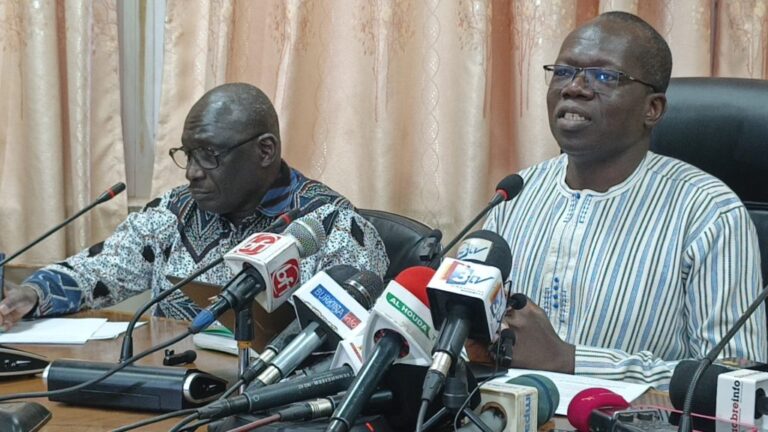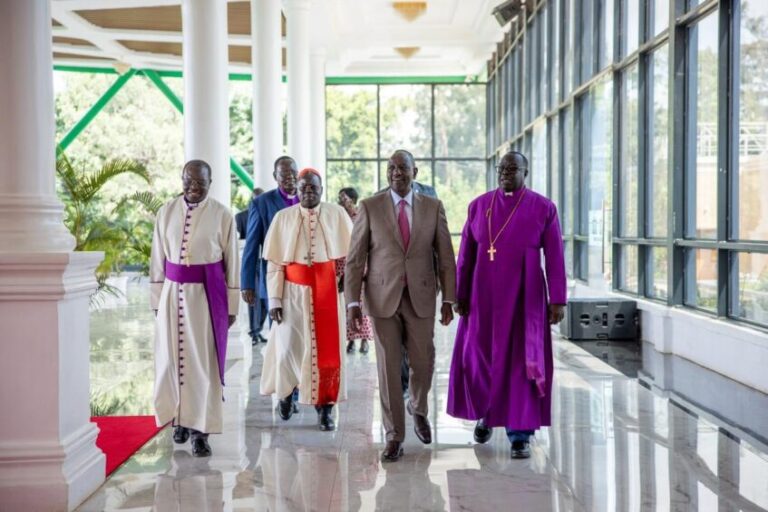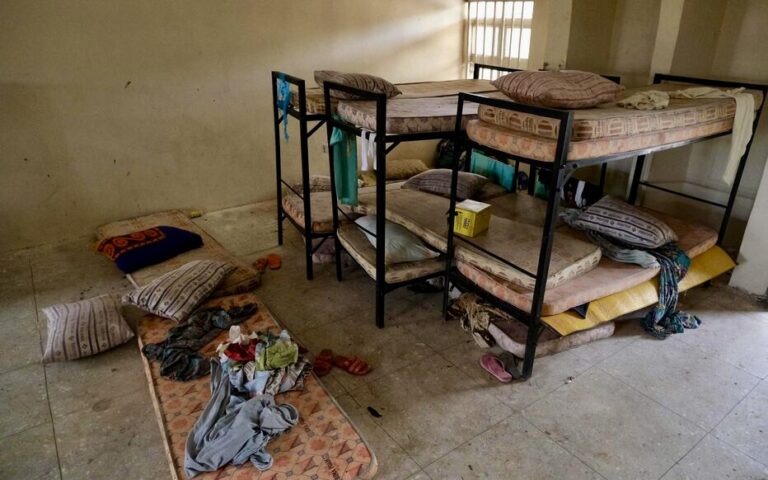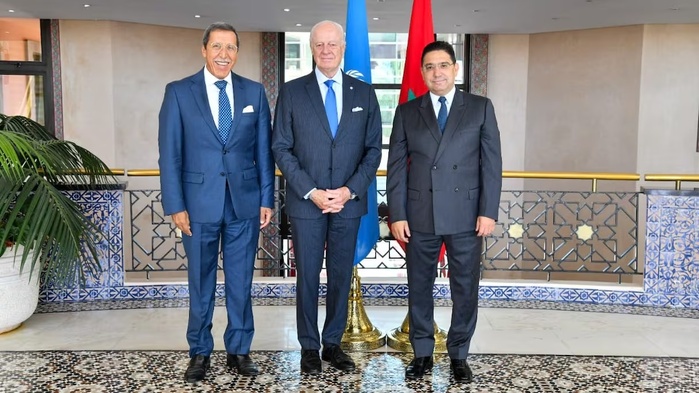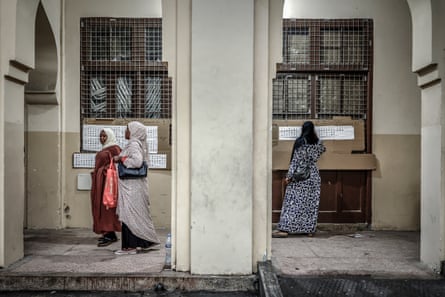
A renewed sense of hope has taken root across the African continent. It is an optimism resting on solid ground: a booming population expected to surpass 2.5 billion by mid-century; vast reserves of critical minerals, oil and gas; and unprecedented levels of infrastructure investment.
The African Development Bank (AfDB) projects that Africa’s combined GDP could reach $4tn (£3tn) by 2030, driven by green-energy investments, urbanisation and digital innovation. One of their senior economists told me confidently earlier this year: “The future will be written in Africa.”
Their “High 5s” strategy has galvanised billions in financing and encouraged a renewed confidence in the continent’s future that is reflected across the diaspora. These transformations symbolise an inflection point: Africa rising on its own terms.
Yet optimism is tempered by a sobering reality. The Mo Ibrahim Foundation’s 2024 African Governance Report paints a stark picture. While youthful demographics and economic potential inspire hope, governance and security trends are moving backwards.
According to the foundation’s index of African governance, scores have declined for the first time in a decade. Nearly 30 African countries have experienced either coups, armed insurgencies or democratic backsliding since 2020. Conflict hotspots from Sudan, Congo and the Sahel to Ethiopia and Mozambique are displacing millions and eroding regional stability.
The report notes that “the democratic dividend is at risk”, citing the silencing of opposition parties, manipulation of electoral commissions, and the use of security forces to consolidate power.
These patterns threaten not only human rights but the very economic gains the AfDB celebrates. As Ibrahim, warned: “Good governance is the foundation upon which Africa’s progress must rest. Without it, development will crumble under the weight of corruption and repression.”
The most recent example of democratic decay comes from Tanzania, a country long praised for its stability and post-colonial unity.
After gaining independence from Britain in 1961, Tanganyika – later the United Republic of Tanzania, after its 1964 union with Zanzibar – was a beacon of African liberation under Julius Nyerere. His African socialist policy of Ujamaa (“familyhood” in Swahili) emphasised equality and national cohesion.
But this unity was built on the dominance of a single party: Chama Cha Mapinduzi (“Party of the Revolution”). Since 1977, CCM has ruled uninterrupted, under a series of leaders – from Ali Hassan Mwinyi to Benjamin Mkapa, Jakaya Kikwete, John Magufuli, and now Samia Suluhu Hassan.
When Magufuli died suddenly in 2021, vice-president Hassan, a Zanzibari and the first woman to lead Tanzania, assumed office. Her early months offered great hope: she allowed media organisations banned by Magufuli to reopen, met opposition leaders and promised national reconciliation. But that promise has crumbled. As she sought re-election this year, Tanzania slid into authoritarianism.
October’s election marked the nadir. Major opposition leaders, including Tundu Lissu of the Chadema party, were arrested or barred from contesting. Other prominent figures – such as Luhaga Mpina, of the Alliance for Change and Transparency (ACT Wazalendo) – were disqualified on technicalities.
On polling day, the government blocked internet access, deployed the military and restricted independent observers. The National Electoral Commission declared Hassan the winner with 97.6 % of the vote, figures widely criticised as implausible and more reminiscent of autocracies than democracies. Observers from the Southern African Development Community (SADC) and civil society groups condemned the election as neither free nor fair. Calls have grown for independent investigations into human rights abuses and killings.
In the days that followed, protests erupted across major cities including Dar es Salaam, Mwanza and Arusha. Eyewitnesses described unmitigated scenes of horror: soldiers firing on crowds, homes raided at night, and morgues filled beyond capacity.

Estimates of deaths have ranged from dozens to thousands. The UN said “hundreds” but an umbrella group of African human rights organisations suggested that as many as 3,000 people may have been killed. Their calculations, based on observations at several hospitals and morgues overwhelmed with bodies, point to a scale of violence far beyond the official figures.
Several prominent activists and political figures have gone missing. Among them are Mdude Nyagali, an outspoken opposition organiser abducted from his home in May 2025 after repeated threats; Edgar Edson Mwakabela, known as “Sativa”, a digital activist who survived a gunshot to the head after being kidnapped in June 2024; Ali Mohammed Kibao, a former intelligence officer for the opposition, found murdered with acid poured on his face in early 2025; and John Heche, Chadema’s deputy leader, reportedly detained incommunicado since last month.
Opposition sources and humanitarian groups have accused state forces of digging mass graves outside Dar es Salaam and Arusha to conceal the scale of the killings. The government, however, denies any wrongdoing. In a BBC interview, Tanzania’s foreign minister, Mahmoud Thabit Kombo, insisted there were no confirmed reports of deaths – a statement at odds with photographic and video evidence received by this author and also circulating on encrypted networks and social media.
This descent into repression represents not just a national tragedy but a regional warning. Tanzania, once a pillar of stability and a host for liberation movements during Africa’s anti-colonial struggles, now mirrors the very autocracies it once opposed. Its degeneration underscores how fragile democratic gains remain across the continent.

In gold-rich Uganda, another east African nation once celebrated for its liberation struggle, President Yoweri Museveni – now 81 and in power since 1986 – has said he will contest yet another election. Should he win again, it would extend his rule beyond four decades, perpetuating the cycle of constitutional manipulation and generational disillusionment. Uganda’s youth, who make up over 70% of its population, face a bleak political horizon where power changes only by mortality, not by mandate.
Meanwhile, the continent’s two deadliest conflicts – in Sudan and the Democratic Republic of Congo – continue to cause misery. In Sudan, the war between the Sudanese Armed Forces and the Rapid Support Forces financed by the United Arab Emirates’ thirst for gold, has reduced Khartoum to rubble, triggered famine, and driven more than 9 million people from their homes.
In eastern Congo, fighting between government troops and the M23 rebel movement has reignited regional tensions, with Rwanda and Uganda accused of backing armed proxies. These wars, fuelled by greed for minerals and control of trade routes, are destroying precisely the human and institutional foundations Africa needs for its much-vaunted “century of growth”.
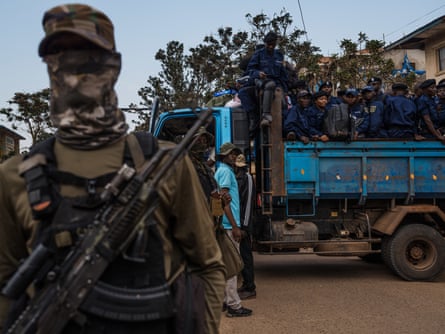
If the vision outlined by the African Development Bank and others is to be realised, the international community must act decisively to prevent the erosion of governance that threatens to derail Africa’s rise. The UN Human Rights Council should urgently launch an independent investigation into the killings, detentions and disappearances during Tanzania’s 2025 election. The African Union and SADC must press for accountability and remind member states of their democratic commitments under the African Charter.
For Africa’s century to truly belong to Africans, its leaders must understand that prosperity without liberty is hollow. The same youthful generation that powers Africa’s demographic boom deserves the right to speak, to organise and to vote without fear. If the continent is to harness its mineral and technological promise, it must first safeguard the dignity and lives of its people.
The world cannot celebrate Africa’s economic rise while ignoring the blood staining the streets. Tanzania’s tragedy is not an isolated event – it reflects the broader struggle for democracy across the continent. And until the cries of the silenced are heard, the dream of an African future will remain unfinished.

